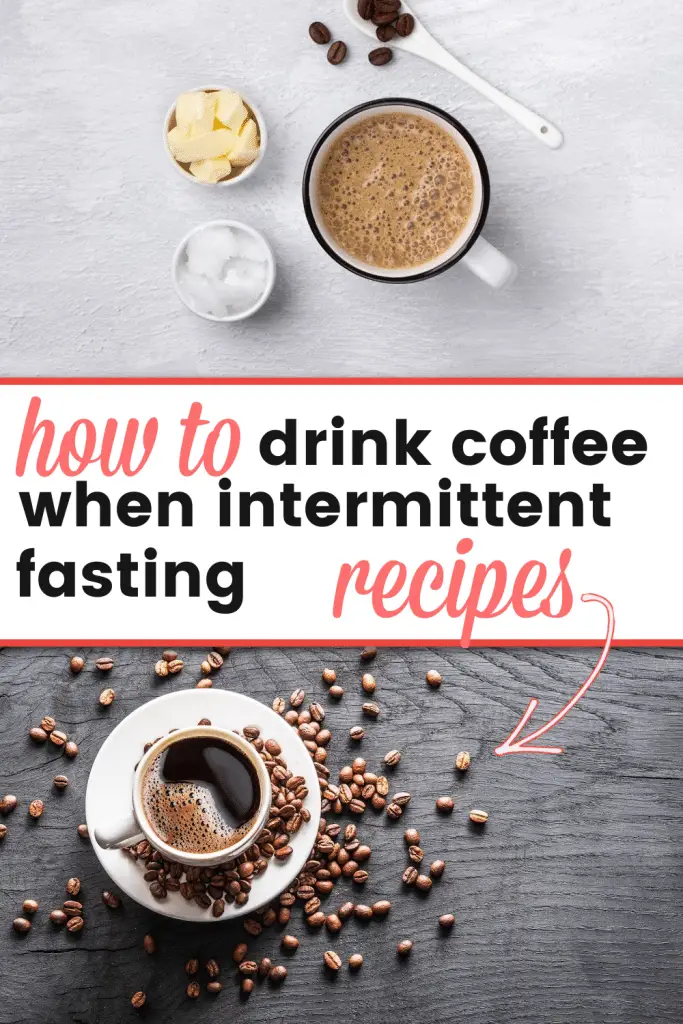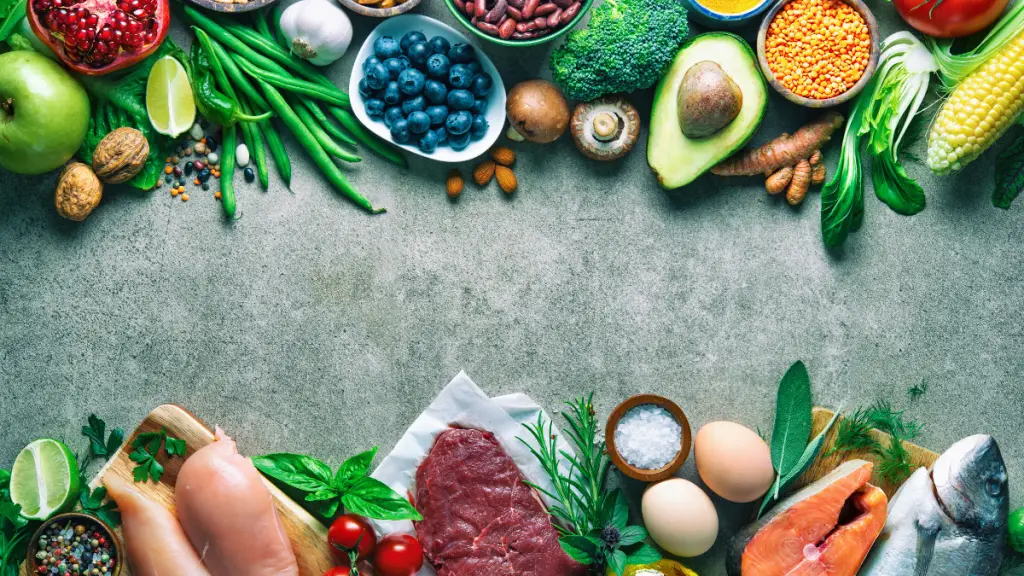Can you drink coffee when intermittent fasting? It depends on whether coffee affects your blood glucose or not. This post will answer all your questions and help determine if you can enjoy your cup of mojo while fasting. Plus, I will give you some delicious intermittent fasting coffee recipes that are unlikely to affect your blood glucose.
Why Blood Sugar and Ketones Matter When Deciding What Breaks a Fast
As I explain in my post How Dirty Fasting Can Help or Hinder Your Weight Loss Progress, the only type of coffee that will not break your fast is black coffee. Even that may cause a rise in blood sugar for some. That is if you want to practice “clean fasting” and keep your calories to a minimum (black coffee has two calories per cup). However, depending on your fasting goals, you may be able to enjoy my delicious intermittent fasting coffee recipes.
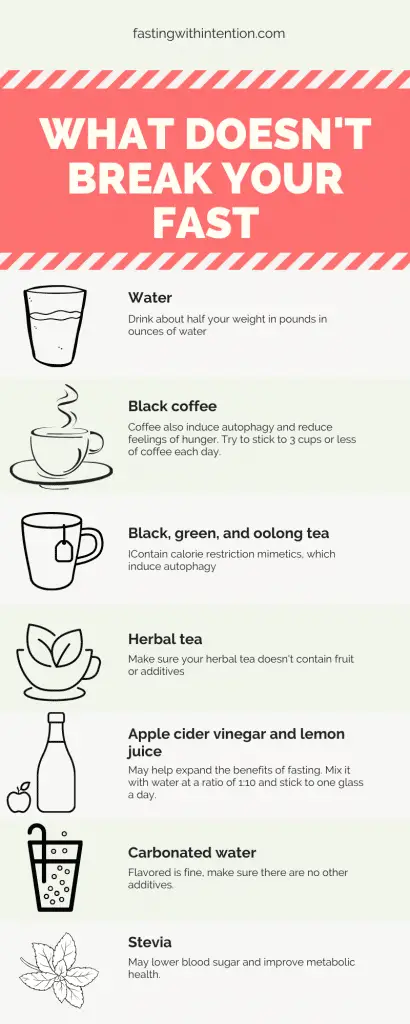
Can You Drink Coffee When Intermittent Fasting?
Now, let’s talk about the impact of coffee on your blood glucose. For some people, even black coffee will raise blood glucose levels. The research involves people with type 2 diabetes, but their blood sugar raised by 8% on days they consumed caffeine.
On the other hand, randomized controlled trials found higher insulin sensitivity and lower risk for type two diabetes among those who consume coffee daily. That’s why consuming coffee on your fasting days will be a very individual decision. It’s not a black-and-white issue (there aren’t many of those, I am telling you!). In the next section, I will help you determine if caffeine affects your blood glucose levels.
The Autophagy Benefits of Coffee
Something else to consider as you are considering whether to drink coffee or not during your fast is that coffee may help induce autophagy. Autophagy means your body is repairing itself. It’s getting rid of old and damaged cells and replacing them with new ones. Not only that, but caffeine helps increase your ketone levels. Intermittent fasting works for health and weight loss because it makes your body switch from glucose to ketones for energy. This metabolic switchover is essential to decrease your appetite, reduce food cravings, and increase your energy level.
Should You Avoid Dirty Fasting?
Besides looking at your blood sugar, why would you want to avoid dirty fasting? First, there is the issue of calories. Dirty fasting can increase calorie intake and make it harder to lose weight. Also, if you are fasting to give your digestive system a break, you should ensure you are clean fasting. Otherwise, you may be able to consume my intermittent fasting coffee recipes. Furthermore, you may find that they help you fast longer. As I was experimenting with
For most people, deciding to avoid dirty fasting will depend on how it affects their blood glucose.
How to Test Your Blood Sugar After Drinking Coffee
As I mentioned, testing your blood glucose is the key to deciding if you can have coffee when intermittent fasting. This may sound a bit overwhelming, but it’s quite easy, I promise. All you need is a simple and affordable device called a ketone monitor (most also can be used to test your blood glucose). I use the Keto Mojo. Technically you should test before your coffee every half an hour for up to two hours after drinking your coffee. I enjoyed reading the Diet Doctor’s article about his experiment. I decided to test only once half an hour after my coffee because I exercise and take supplements (which then become confounding factors) about an hour later.

The Dawn Effect
I discovered that the dawn effect affected my glucose readings during my experiment. I had heard of the dawn phenomenon (or effect) before but thought it happened before you woke up. Depending on your metabolism, it can happen anywhere between 2 am and 8 am. It turns out it’s usually between 6 and 7 am for me. I figured this out because I tested my glucose the first morning around 6 am, which was 5.0 mmol/L. After my black coffee, it was 5.1 mmol/L (negligible difference considering the margin of error you have to allow).
The next three mornings, I tested around 5 am and found my glucose to be around 4.6 mmol/L. It would then increase to 5.1 or 5.2 on the second reading. I was sure coffee didn’t raise my blood sugar because I had experimented before. Consequently, I decided to test one morning without drinking coffee, in a completely fasted state. I still experienced the rise in blood sugar! This confirmed what I suspected. I was experiencing the dawn effect. My body was preparing for the demands of the day by releasing more glucose into my bloodstream.
My Glucose and Ketone Readings
My readings were always the same whether I had black coffee, nothing at all, or my intermittent fasting coffee recipes. My blood glucose levels were around 5.0 mmol/L (after the morning rise), and my ketones were around 0.5 mmol/L.
Would you like to test your glucose and ketones? I use the Keto Mojo, and my affiliate link will give you a 15 percent discount.

Can You Only Have Black Coffee When Intermittent Fasting?
Since you were wondering if drinking coffee is ok when intermittent fasting, it is likely that you are also wondering if you can add milk, cream, or sugar to your coffee as well, let’s talk about it!
Can You Drink Coffee With Milk While Intermittent Fasting?
Choosing to add anything to your coffee balances your enjoyment of life and the benefits you desire from intermittent fasting. While black coffee is optimal for autophagy benefits, adding other things like milk and cream to your coffee may not interfere with your ketone levels and your weight loss goals. I would favor cream over milk because it has a higher fat content, but yes, if your goal is weight loss, you can have milk in your coffee when intermittent fasting.
Can You Have Cream In Your Coffee When Intermittent Fasting?
Can you have cream in your coffee when intermittent fasting? Yes! Absolutely! If you are not dairy sensitive (something else that testing your glucose levels would help determine) is absolutely fine! If you are concerned about the impact of dairy on your insulin level (I found this article fascinating on the topic), I recommend trying other dairy-free high-fat options like full-fat coconut milk.
Can You Drink Coffee With Sugar During Intermittent Fasting?
Sugar is the one thing you should avoid in your coffee when intermittent fasting. To sweeten your coffee, choose stevia or monk fruit rather than sugar.
Intermittent Fasting Coffee Recipes
Now that we have answered the question, can you drink coffee when intermittent fasting?, let me share some blood-glucose-safe coffee recipes. My favorite way to have my morning coffee is with coconut milk. That’s what I have been doing for a long time! Very simple, satisfying, and filling. It’s also the first coffee I tested months ago to ensure it wasn’t affecting my blood glucose. I tested it later in the morning, after the dawn effect rise. As I looked for intermittent fasting coffee recipes to try and test, I found different bulletproof coffee recipes. I think I may start drinking these more often. I love how full and satisfied they made me feel!
Simple Coconut Milk Coffee
I don’t avoid dairy. I used to be sensitive to dairy, but after a year of intermittent fasting (which helps reduce inflammation), I found I could have dairy in moderation. I still prefer coconut milk in my coffee, but all brands taste alike. Some are more creamy than chunky. You have to find the right kind. Make sure you get full-fat coconut milk. Just put enough coconut milk to get the color of the coffee you like. Even full-fat coconut milk contains carbs, which is pushing the envelope. Testing my ketones and my glucose revealed that it seemed fine for me.
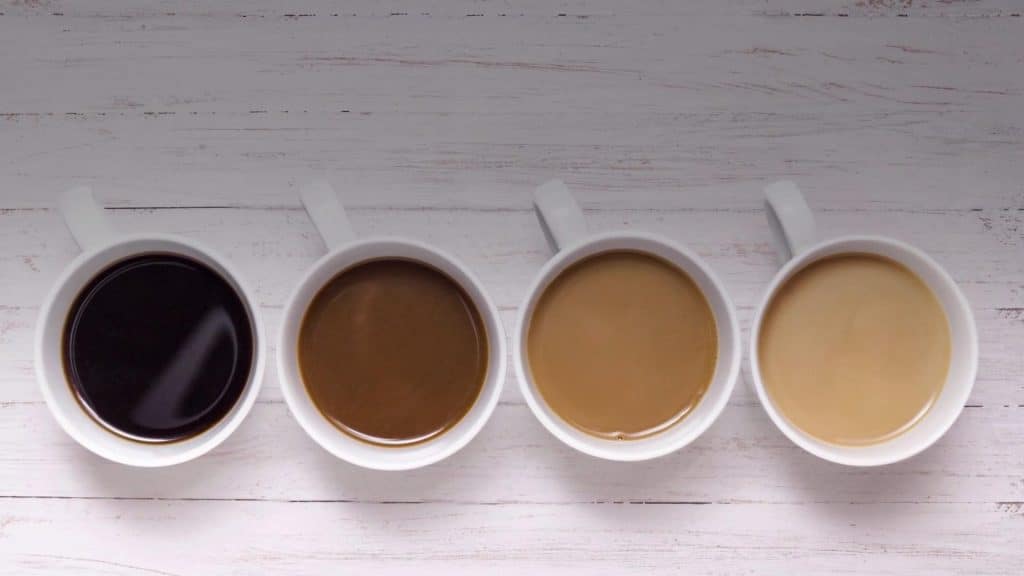
Basic Bulletproof Coffee
There are quite a few different bulletproof coffee recipes out there. Some have oil and butter. Some have almond milk. Some have collagen, etc. This recipe is what I did, and I loved it:
- 1/2 Tbsp MCT oil
- 1/2 Tbps butter
- coconut milk (optional)
- 300 ml coffee
Blend all the ingredients until frothy.
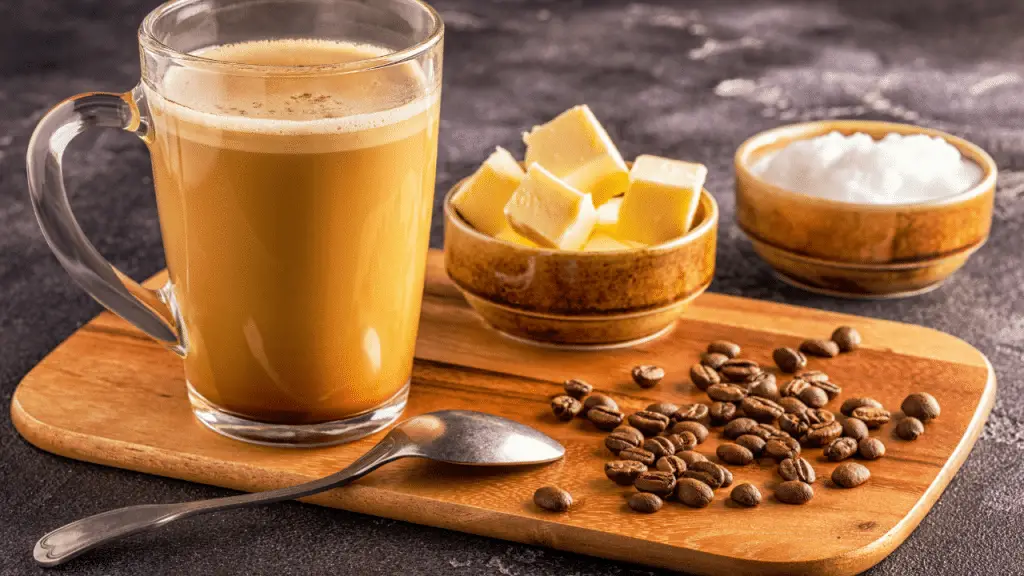
Chocolate Coffee
This is a chocolate version of bulletproof coffee. It has the added benefits of the antioxidants from cocoa nibs:
- 1/2 Tbsp MCT oil
- 1/2 Tbps butter
- 1 Tbsp cocoa nibs
- coconut milk (optional)
- 300 ml coffee
Blend all the ingredients until frothy.
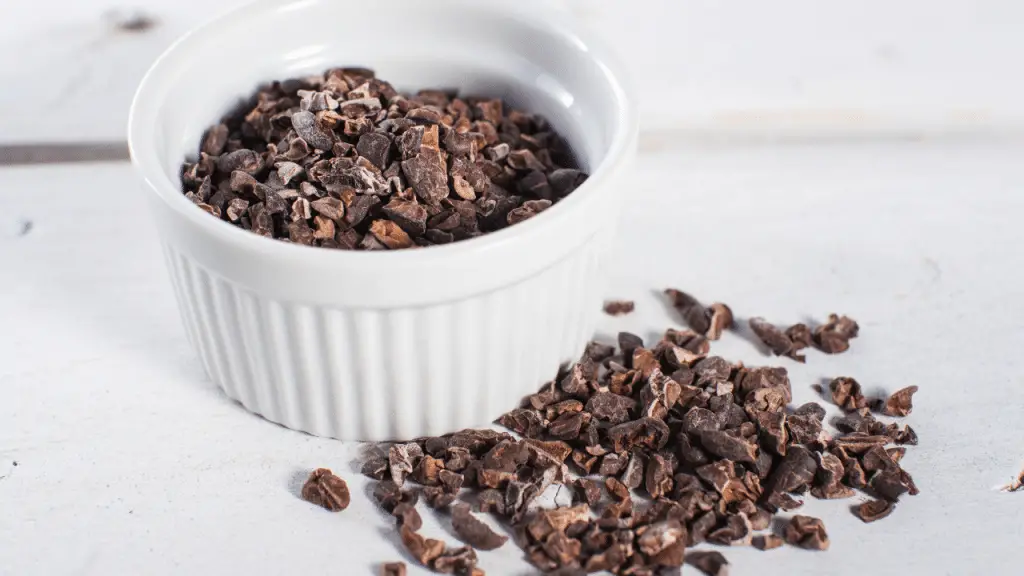
Cinnamon Coffee
Add cinnamon (1 tsp or so) to your black or bulletproof coffee. Cinnamon helps regulate your blood sugar. Moreover, it has anti-inflammatory and antioxidant properties.
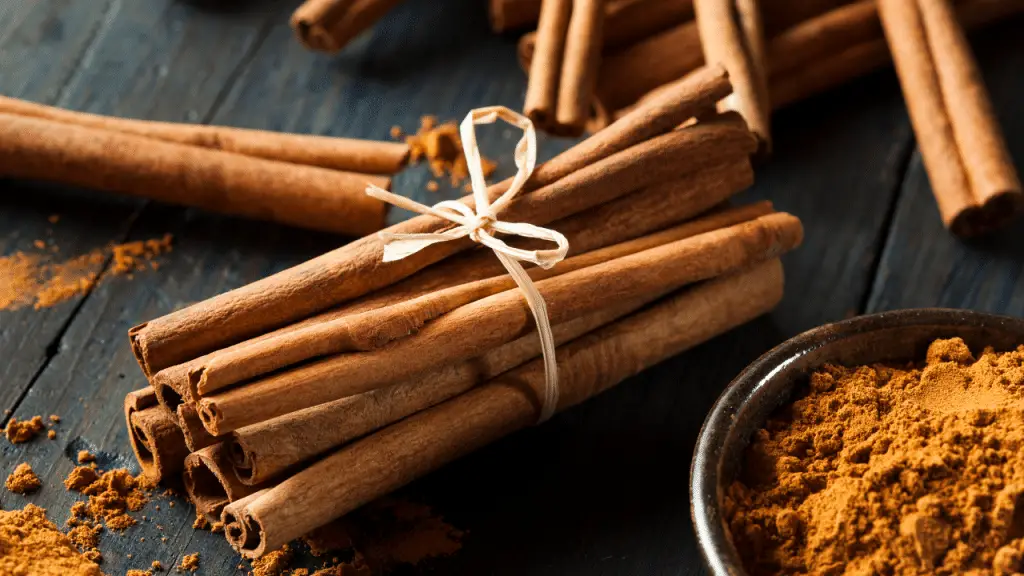
Himalayan Salt Coffee
Another excellent intermittent fasting coffee idea I found was to add a pinch of Himalayan salt to your black coffee. It is said to eliminate the bitterness of your coffee. You could also try it in your bulletproof coffee.
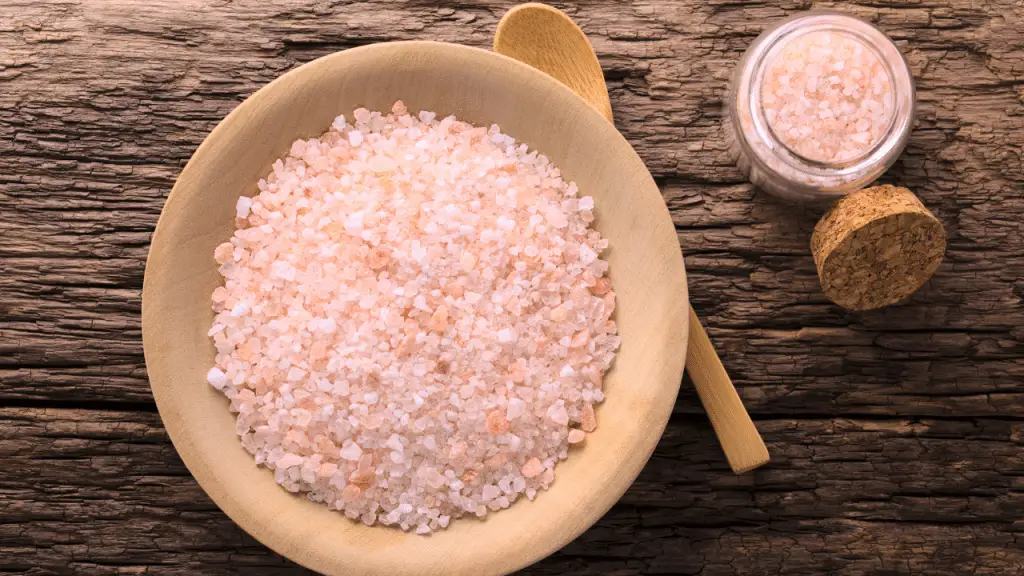
In Summary
Can you drink coffee when intermittent fasting? Most likely, yes! In case of doubt, test your glucose level before drinking your coffee and again 30 minutes after drinking your coffee to confirm. You can test with black coffee and your coffee creamer if you normally enjoy something in your coffee. Read How to Choose the Best Coffee Creamer for Intermittent Fasting for more info.
Intermittent Fasting Coffee Recipes

